Stanislav Shvabrin

Stanislav Shvabrin
Associate Professor of Russian;
Russian Flagship Program Director
Education
Ph.D., University of California, Los Angeles (UCLA)
Interests
Comparative Literary Studies; Literature and Culture of Russian Diasporas; Soviet “Internal Emigration”; Poetry and Poetics; Intertextuality; Translation Studies; Poetics and Politics of National Memory
Selected Books
 Vladimir Nabokov et la traduction. Sous la direction de Julie Loison-Charles et Stanislav Shvabrin. Collection: Traductologie. Artois: Presses Université, 2021
Vladimir Nabokov et la traduction. Sous la direction de Julie Loison-Charles et Stanislav Shvabrin. Collection: Traductologie. Artois: Presses Université, 2021
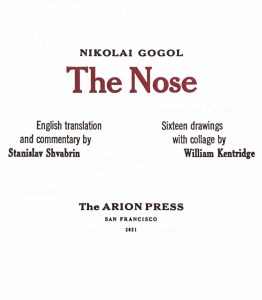 Nikolai Gogol. The Nose. English Translation and Commentary by Stanislav Shvabrin. With 16 Artworks and a Flipbook by William Kentridge. San Francisco: The Arion Press, 2021
Nikolai Gogol. The Nose. English Translation and Commentary by Stanislav Shvabrin. With 16 Artworks and a Flipbook by William Kentridge. San Francisco: The Arion Press, 2021
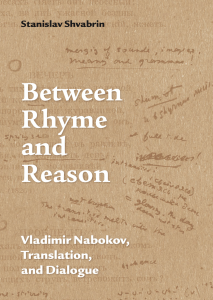 Stanislav Shvabrin. Between Rhyme and Reason: Vladimir Nabokov, Translation, and Dialogue. Toronto: University of Toronto Press, 2019
Stanislav Shvabrin. Between Rhyme and Reason: Vladimir Nabokov, Translation, and Dialogue. Toronto: University of Toronto Press, 2019
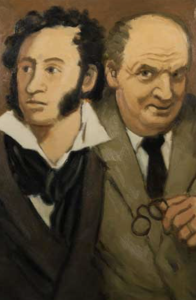 Eugene Onegin, a novel in verse by Alexander Pushkin, translated into English by Vladimir Nabokov, with the Russian in Cyrillic and transliteration by Stanislav Shvabrin, and with an introduction by Brian Boyd; frontispiece by Stan Washburn portraying Pushkin and Nabokov. San Francisco: The Arion Press, 2018
Eugene Onegin, a novel in verse by Alexander Pushkin, translated into English by Vladimir Nabokov, with the Russian in Cyrillic and transliteration by Stanislav Shvabrin, and with an introduction by Brian Boyd; frontispiece by Stan Washburn portraying Pushkin and Nabokov. San Francisco: The Arion Press, 2018
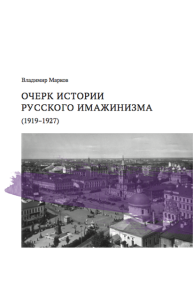 В.Ф. Марков. Очерк истории русского имажинизма (1919-1927). Составление, предисловие и перевод с английского Станислава Швабрина при участии автора. Москва-Екатеринбург: Кабинетный ученый, 2017
В.Ф. Марков. Очерк истории русского имажинизма (1919-1927). Составление, предисловие и перевод с английского Станислава Швабрина при участии автора. Москва-Екатеринбург: Кабинетный ученый, 2017
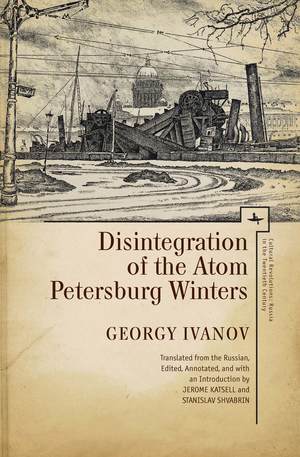 Georgy Ivanov. Disintegration of the Atom. Petersburg Winters. Edited, Translated, Annotated and with an Introduction by Jerome Katsell and Stanislav Shvabrin. Boston, MA: Academic Studies Press, 2016
Georgy Ivanov. Disintegration of the Atom. Petersburg Winters. Edited, Translated, Annotated and with an Introduction by Jerome Katsell and Stanislav Shvabrin. Boston, MA: Academic Studies Press, 2016
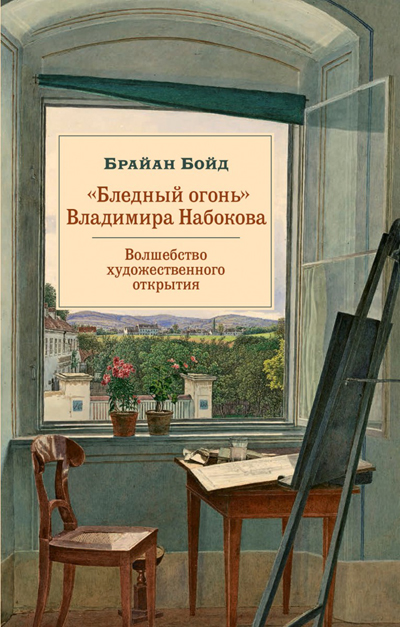 Брайан Бойд. «Бледный огонь» Набокова: волшебство художественного открытия. Перевод с английского и предисловие Станислава Швабрина. Санкт-Петербург: Издательство Ивана Лимбаха, 2015
Брайан Бойд. «Бледный огонь» Набокова: волшебство художественного открытия. Перевод с английского и предисловие Станислава Швабрина. Санкт-Петербург: Издательство Ивана Лимбаха, 2015
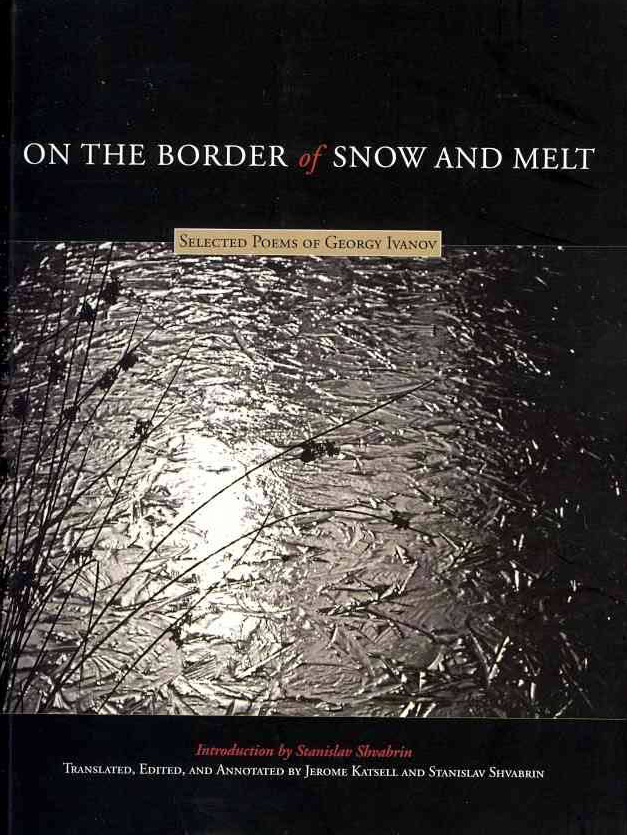 On the Border of Snow and Melt: Selected Poems of Georgy Ivanov. Translated, Edited and Annotated by Jerome H. Katsell and Stanislav Shvabrin. Introduction by Stanislav Shvabrin. Santa Monica, CA: Perceval Press, 2011
On the Border of Snow and Melt: Selected Poems of Georgy Ivanov. Translated, Edited and Annotated by Jerome H. Katsell and Stanislav Shvabrin. Introduction by Stanislav Shvabrin. Santa Monica, CA: Perceval Press, 2011
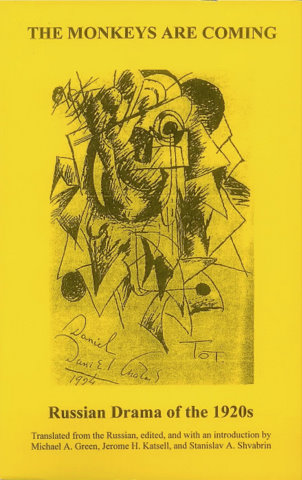 “The Monkeys Are Coming!”: Russian Drama of the 1920s. Mikhail Bulgakov, Daniil Kharms, Leo Lunts, Anatoly Mariengof, Evgeny Zamiatin. Translated from the Russian, Edited and with an Introduction by Michael Green, Jerome Katsell and Stanislav Shvabrin. Idyllwild, CA: Charles Schlacks Jr., Publisher, 2009
“The Monkeys Are Coming!”: Russian Drama of the 1920s. Mikhail Bulgakov, Daniil Kharms, Leo Lunts, Anatoly Mariengof, Evgeny Zamiatin. Translated from the Russian, Edited and with an Introduction by Michael Green, Jerome Katsell and Stanislav Shvabrin. Idyllwild, CA: Charles Schlacks Jr., Publisher, 2009
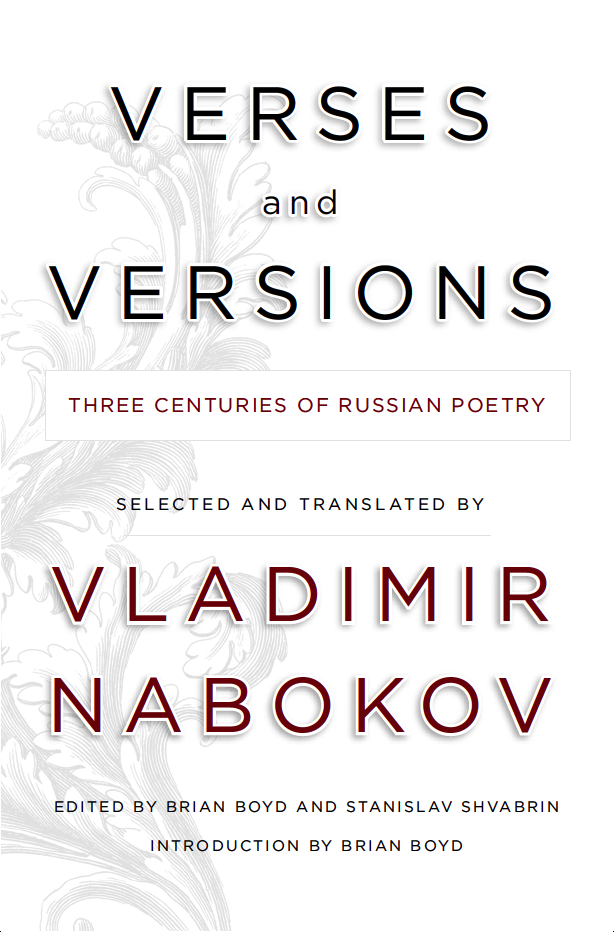 Verses and Versions: Three Centuries of Russian Poetry Selected and Translated by Vladimir Nabokov. Introduction by Brian Boyd, edited and annotated by Brian Boyd and Stanislav Shvabrin. Orlando: Harcourt Houghton Mifflin, 2008
Verses and Versions: Three Centuries of Russian Poetry Selected and Translated by Vladimir Nabokov. Introduction by Brian Boyd, edited and annotated by Brian Boyd and Stanislav Shvabrin. Orlando: Harcourt Houghton Mifflin, 2008
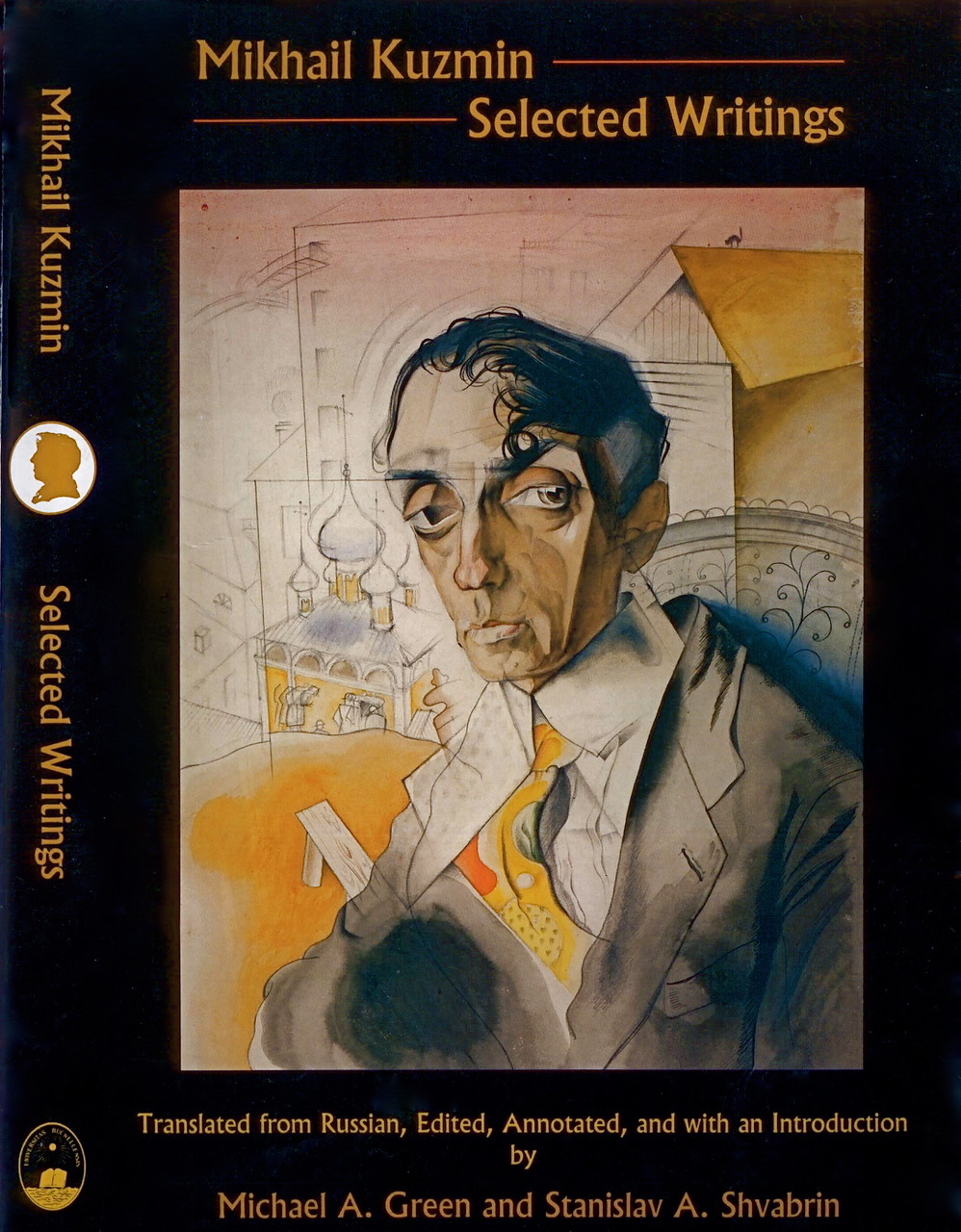 Mikhail Kuzmin. Selected Writings. Translated, Edited, Annotated and with an Introduction by Michael A. Green and Stanislav A. Shvabrin. Lewisburg, PA: Bucknell University Press, 2005
Mikhail Kuzmin. Selected Writings. Translated, Edited, Annotated and with an Introduction by Michael A. Green and Stanislav A. Shvabrin. Lewisburg, PA: Bucknell University Press, 2005
Selected Articles
“Berlin.” In Vladimir Nabokov in Context. Edited by David Bethea and Siggy Frank. Cambridge: Cambridge UP, 2018: 87-93;
“Alfred de Musset, Vladimir Nabokov: The Invention of Exile.” In Vladimir Nabokov et la France. Sous la direction de Yannicke Chupin, Agnès Edel-Roy, Monica Manolescu et Lara Delage-Toriel. Études anglophones. Strasbourg: Presses universitaires de Strasbourg, 2017: 77-88;
“ ‘And if my private universe scans right…’: Semantics of Meter in Vladimir Nabokov’s Poetry – and Worldview.” In Nabokov Upside Down. Edited by Brian Boyd and Marijeta Bozovic. Evanston: Northwestern UP, 2017: 169-184;
«“Печать непреходящего”: Набоков-Сирин о Пушкине, Блоке – и о себе». В. В. Набоков-Сирин. «О Пушкине». «О Блоке». Публикация, подготовка текстов, предисловие и примечания Станислава Швабрина. Новый Журнал № 277 (2014): 189-217;
“ ‘…A Sob that Alters the Entire History of Russian Letters…’: Cincinnatus’s Plight, Tiutchev’s ‘Last Love,’ and Nabokov’s Metaphysics of Poetic Form.” Slavic and East European Journal Vol. 58, No. 3 (Fall 2014): 437-464;
“Nabokov and Heine.” Russian Literature Vol. LXXIV, Nos. III-IV (2013): 363-416;
“Vladimir Nabokov’s ‘La Belle Dame Sans Merci’: A Study in the Ethics and Effects of Literary Adaptation.” Comparative Literature Vol. 65, No. 1 (Winter 2013): 101-122;
“ ‘The Burden of Memory’: Mikhail Kuzmin as Catalogue Poet,” in The Many Facets of Mikhail Kuzmin: A Miscellany / Кузмин многогранный: Сборник статей и материалов. Edited by Lada Panova and Sarah C. Pratt. Compiled and Introduced by Lada Panova. Bloomington, IN: Slavica, 2011: 3-25;
“ ‘The Dreamy Stutter of Blok’s Rhythms’: On the Name and Nature of Nabokov’s Notion of ‘Pausative Verse.’” Russian Literature (Special Issue: Poetry and Poetics) Vol. LXVI, No. I (2009): 99-130;
“The Imagined Interlocutor in Kurbskii’s History of the Grand Prince of Moscow.” Speculum Slaviae Orientalis: Muscovy, Ruthenia and Lithuania in the Late Middle Ages. UCLA Slavic Studies. New Series. Vol. IV. Moscow: Novoe izdatel’stvo, 2005: 166-184;
Selected Book Reviews
Peter Drews. Heine und die Slaven. Die gesamtslavische Rezeption der Werke Heinrich Heines von den Anfängen bis zur Gegenwart. München: Verlag Otto Sagner, 2013. Slavonic and East European Review Vol. 95, No. 2 (April 2017): 348-350;
Annick Morard. De l’émigré au déraciné: la “jeune génération” des écrivains russes à Paris entre identité et esthétique (1920-1940). Lausanne: L’Age d’Homme, 2010. Slavic Review Vol. 71, No. 2 (Summer 2012): 475-476;
Daryl W. Palmer. Writing Russia in the Age of Shakespeare. Studies in European Cultural Transition, vol. 22. Burlington, VT: Ashgate Publishing Company, 2004. 256 pp. Slavic and East European Journal Vol. 50, No. 3 (Fall 2006): 514-15;
Selected Talks, Conference Papers
“‘I’m in All and All’s in Me’: Fyodor Tyutchev, James Joyce, and Vladimir Nabokov’s Philosophy of Nature.” Presented at the “Vladimir Nabokov: écrire la nature” conference (Université de Lausanne, Switzerland), June 27, 2023;
“ ‘L’adolescent aimé des miroirs’: Henri de Régnier, Vladimir Nabokov, and the Narcissus Motif.” Presented at the AATSEEL annual meeting. San Diego, CA. February 7, 2020;
“ ‘Tearing the Web of When and Where’: Jean Richepin and Vladimir Nabokov as Interlocutors.” Presented at the Colloque international “Vladimir Nabokov: histoire et géographie” organized by Les Chercheurs enchantés: Société Française Vladimir Nabokov. Sorbonne Université, Paris, France. June 7, 2019;
“Truth, Beauty – and Violence: Vladimir Nabokov, John Keats, and the Unmentionable.” The Department of Modern Languages and Literatures. The University of Tennessee, Knoxville. April 11, 2019;
“Between Rhyme and Reason: Vladimir Nabokov, Translation, and Dialogue.” Presented at the Transatlantic Symposium “Vladimir Nabokov and Translation” (Université Lille, campus Pont-de-Bois). Lille, France. May 18, 2018;
“ ‘Les Voleurs d’Enfants’: Vladimir Nabokov and Jules Supervielle; Philémon Bigua and Humbert Humbert.” Presented at “Les soixante ans de Lolita” conference organized by Les Chercheurs enchantés: Société Française Vladimir Nabokov. The American Library in Paris and l’Université Paris Ouest Nanterre La Défense, France. September 25, 2015;
“Honoring Anna Akhmatova.” The Nâzim Hikmet Poetry Festival. Page-Walker Arts & History Center. Cary, NC. April 26, 2015;
“Of Sacrilege and Freedom: Toward the Origins of Vladimir Nabokov’s Gift – and Beyond.” Department of Slavic Languages and Literatures. Stanford University. April 21, 2015;
“Vladimir Nabokov’s ‘Crucified Women’: from Russian Civil War to Lolita.” Institute of Slavic, East European, and Eurasian Studies (ISEEES), Department of Slavic Languages and Literatures, Department of Comparative Literature, Department of English. The University of California at Berkeley. April 20, 2015;
“Alexander Blok’s ‘Scythians’: Russia’s Dreams of Eurasia.” The Duke University Working Group on Eurasia. March 19, 2015;
“Of Sacrilege and Freedom: Toward the Origins of Vladimir Nabokov’s Gift.” Davis Center for Russian and Eurasian Studies at Harvard University. March 12, 2015;
“ ‘Quand le chagrin, l’exil et les années / Auront flétri ce cœur désespéré…’: Alfred de Musset, Vladimir Nabokov, and the Invention of Exile.” Presented at the Colloque International “Vladimir Nabokov et la France” organized by Les Chercheurs enchantés: Société Française Vladimir Nabokov, May 30, 2013 (Université Paris-Sorbonne – Paris IV);
“Vladimir Nabokov, Heinrich Heine: ‘Der Doppelgänger.’ ” Department of German and Russian Studies, University of Missouri, Columbia. October 29, 2012;
“ ‘And if my private universe scans right…’: Semantics of Meter in Vladimir Nabokov’s Poetry – and Worldview.” Given at “Nabokov Upside Down: International Vladimir Nabokov Conference,” University of Auckland, New Zealand, January 12, 2012;
“ ‘Il ne faut pas péter plus haute que son cul’? Nabokov’s Nikolka Persik as Colas Breugnon.” Presented at the annual meeting of the American Association of Teachers of Slavic and East European Languages (AATSEEL), San Francisco, CA. December 29, 2008;
“Alfred de Musset’s ‘lyrisme sanglotant’ in Nabokov’s Oeuvre: ‘Maiskaia noch’ to Ada.” Presented at the annual meeting of the American Association of Teachers of Slavic and East European Languages (AATSEEL), Philadelphia, PA. December 29, 2006;
“The Institut de France Affair of Stravinsky in Russian Émigré Newspapers.” Given at the Stravinsky’s Legacies Symposium honoring the opening of the H. Colin Slim Stravinsky Collection, The University of British Columbia Library and The School of Music, University of British Columbia (UBC), Vancouver, Canada. April 6, 2002;
Frequently Taught Courses
- GSLL 60: Terrorism in Russian Literature and History
- RUSS 409: Modern Russian in Context I
- RUSS 410: Modern Russian in Context II
- RUSS 455: 20th Century Russian Literature and Culture
- RUSS 460: Russian Short Story
- RUSS 473/CMPL 477: Vladimir Nabokov: Art and Life
Undergraduate and Graduate Advising and Mentoring
- Graham Weaver, “Authorship and Accountability: Bakhtinian Authorial Presence in The Brothers Karamazov, Absalom, Absalom!, and Lolita” (Honors Thesis co-advised with Eric S. Downing, 2019-2020);
- Patrick Wise, “Leonid Andreyev’s Visuality” (Honors Thesis co-advised with Shayne Legassie, 2016-2017);
- Peter Alfredson, “Mercuriality as Muse: Intersecting Identities in Contemporary Russian-Jewish-American Literature” (Honors Thesis, 2013-2014)

